February 2018 Metrics Report
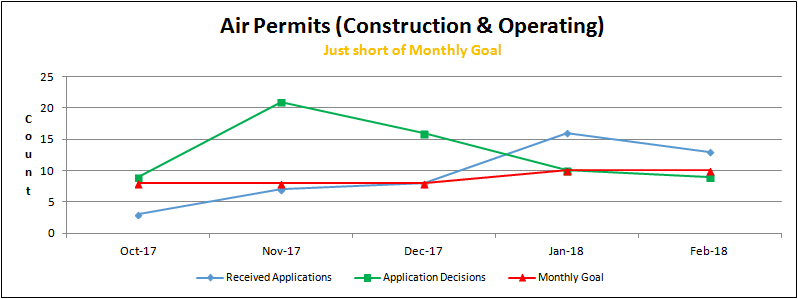
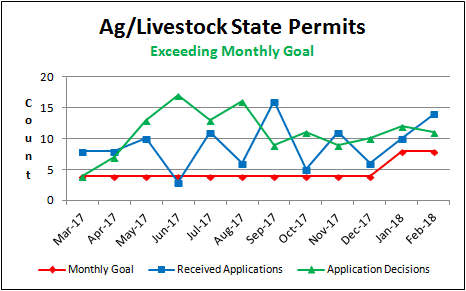
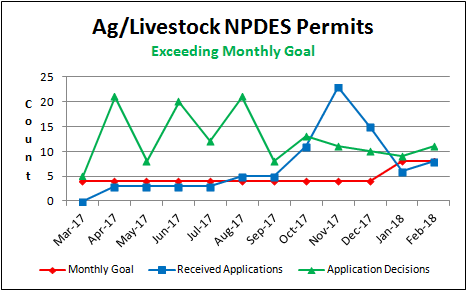
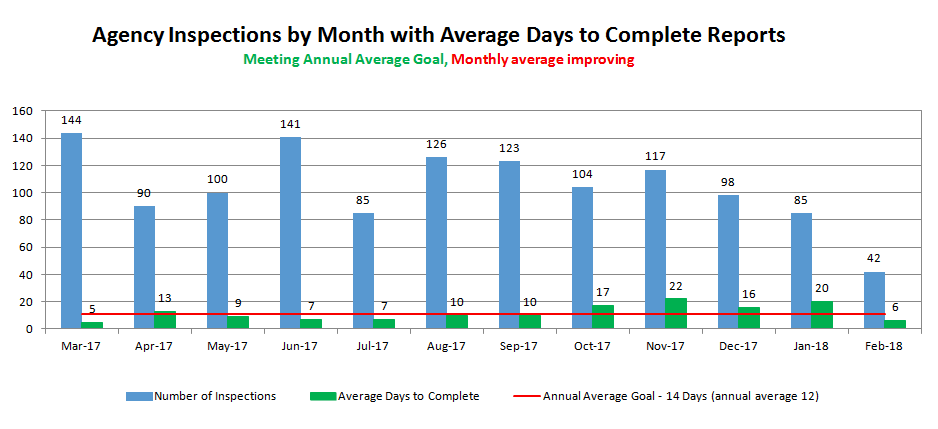
2017 Permitting and Distribution of Aid
The Department is authorized by statute to issue permits to prevent and control pollution. Grants and loans are awarded to assist the regulated community to comply with regulations and to the public to help address various environmental issues.
Below is a snapshot of the agency’s activities in permitting and aid for 2017.
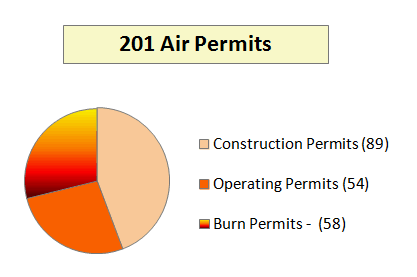
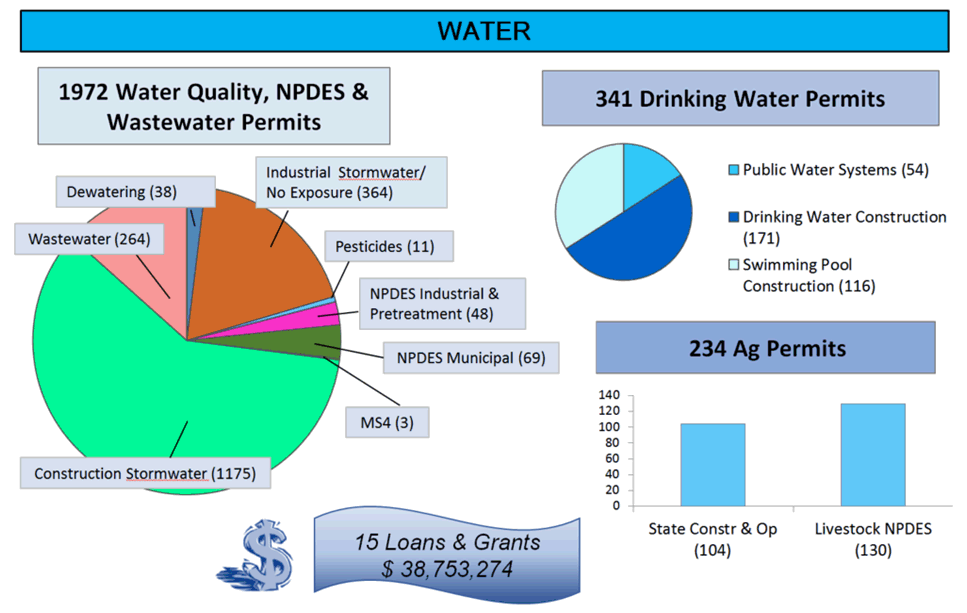
Emerging Issues/Risks: NDEQ hosted a meeting to discuss the impact of prescribed fires on southeast Nebraska on February 23rd. Attendees included representatives of Lincoln and Lancaster County, City of Omaha, Douglas County, EPA Reg. VII and the Kansas Dept. of Health and Environment. The purpose of the meeting was to examine current and planned ambient air monitoring activities and examine how citizens could best be informed of potential impacts from prescribed fires. Burning in the Flint Hills of Kansas was a primary reason for the Roundtable; however, it is important to note that burning outside the Flint Hills, and wildfires from various locations around the country, have impacted Nebraska as well.
Accomplishments: Staff from NDEQ programs and the DHHS Drinking Water program have been actively cross-training to better utilize staff and develop redundancy in order to better serve all stakeholders. During February, all Drinking Water Engineering staff completed training provided by NDEQ Wastewater Construction staff. Similarly, inspection staff have been performing joint inspections to develop the ability for both NDEQ and DHHS staff to conduct inspections of both wastewater treatment plants and public drinking water systems. This effort has also led to NDEQ providing cross-training for our Ag and On-site staff. Staff from both programs have similar expertise and experience and will be able to serve multiple functions with the training.
Misc. Items of Note: NDEQ staff met with representatives of NioCorp, the company proposing to open a rare earth metals mine near Elk Creek, to discuss requirements associated with the closure and post-closure care at the facility. This is a unique operation and developing a clear understanding of how related NDEQ permits will address the closure, either planned or unexpected, and post-closure of the facility, is critically important as the permitting process moves forward.